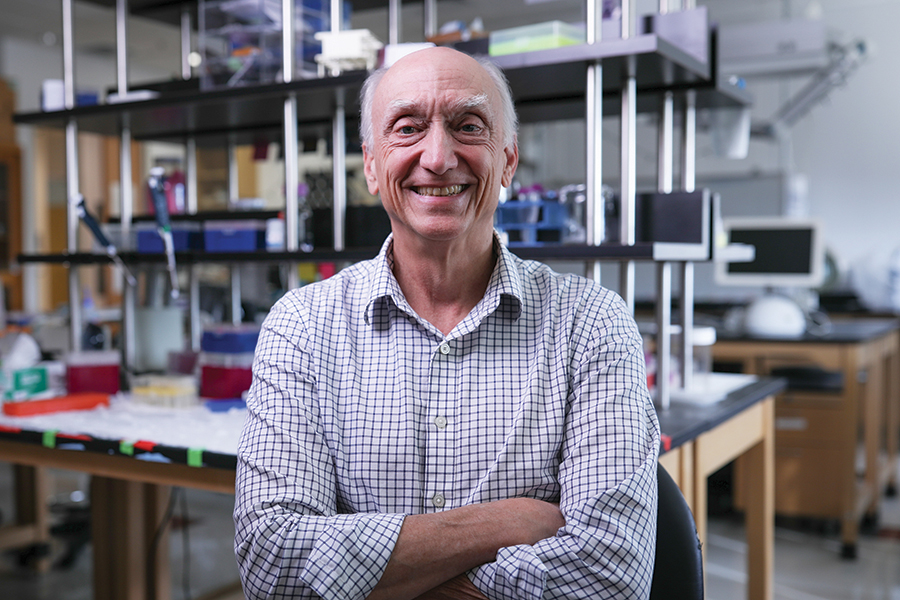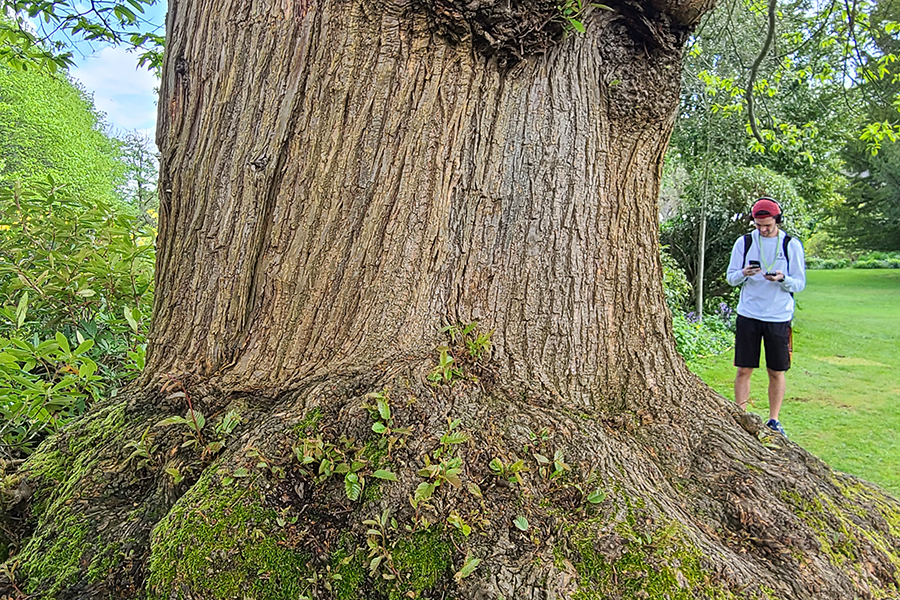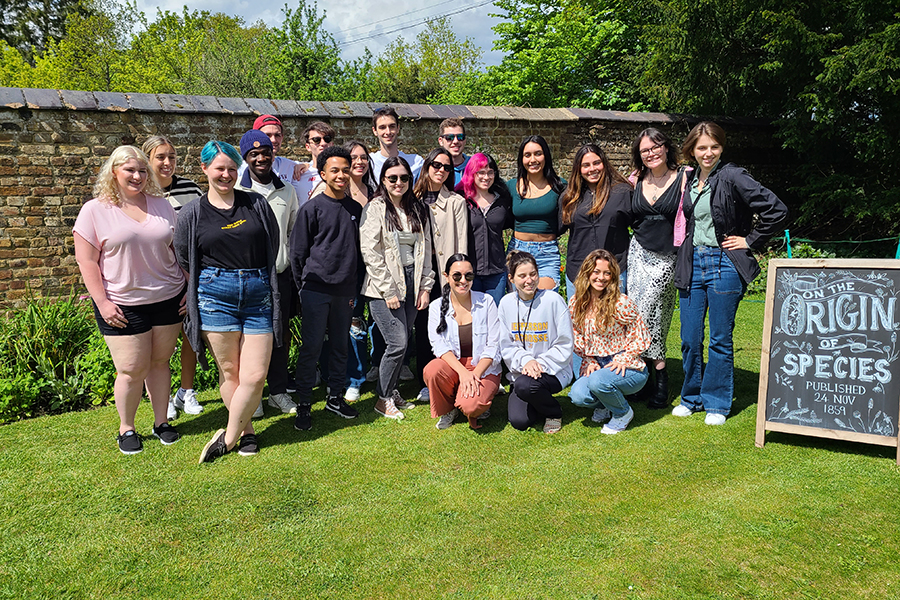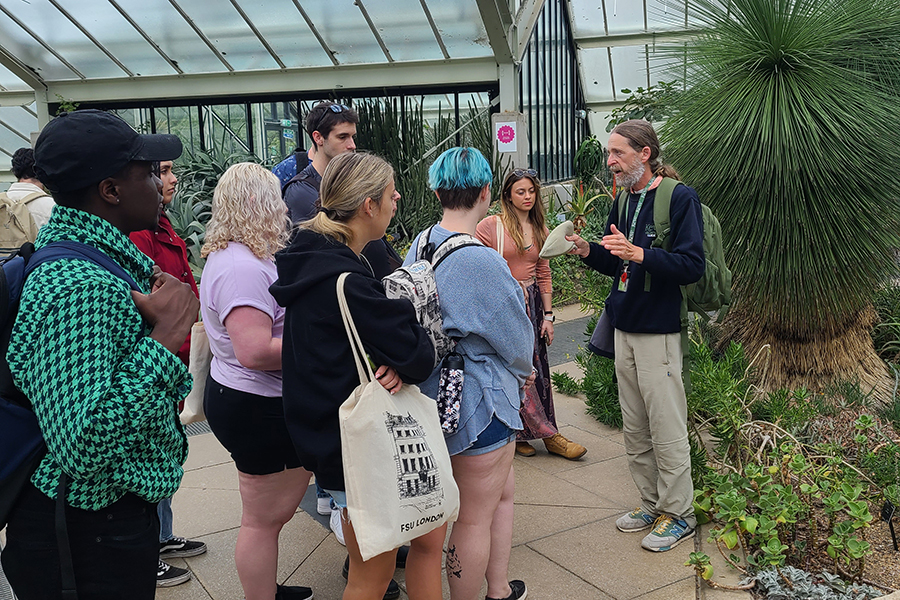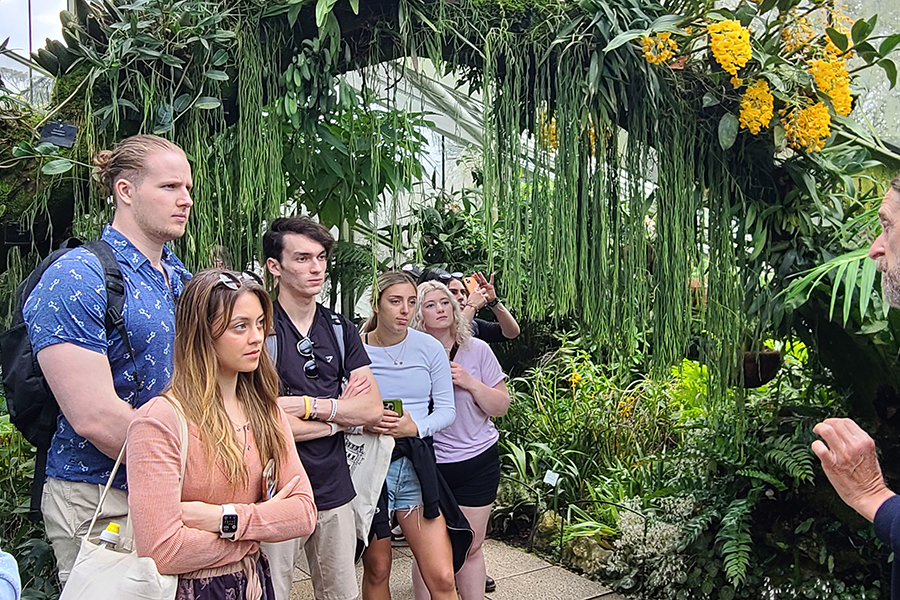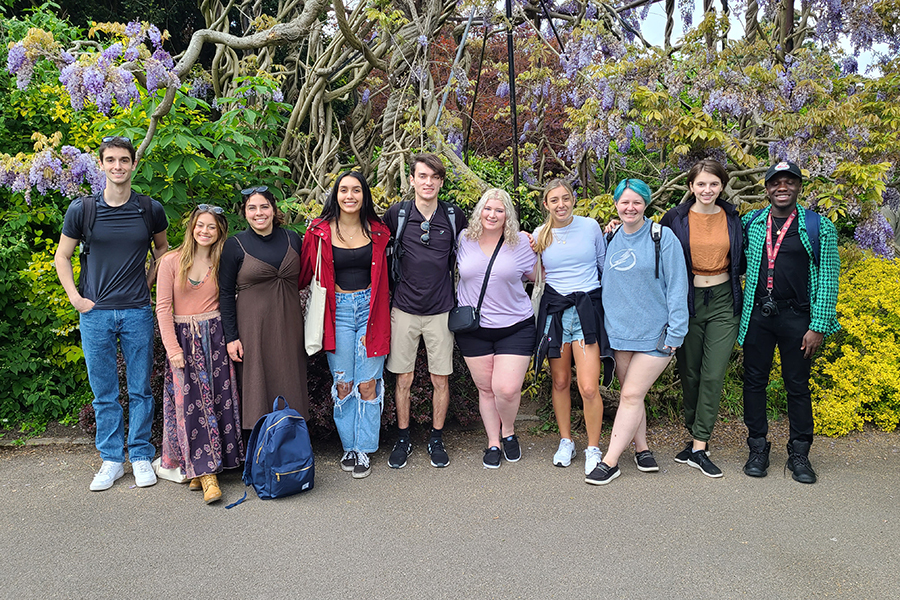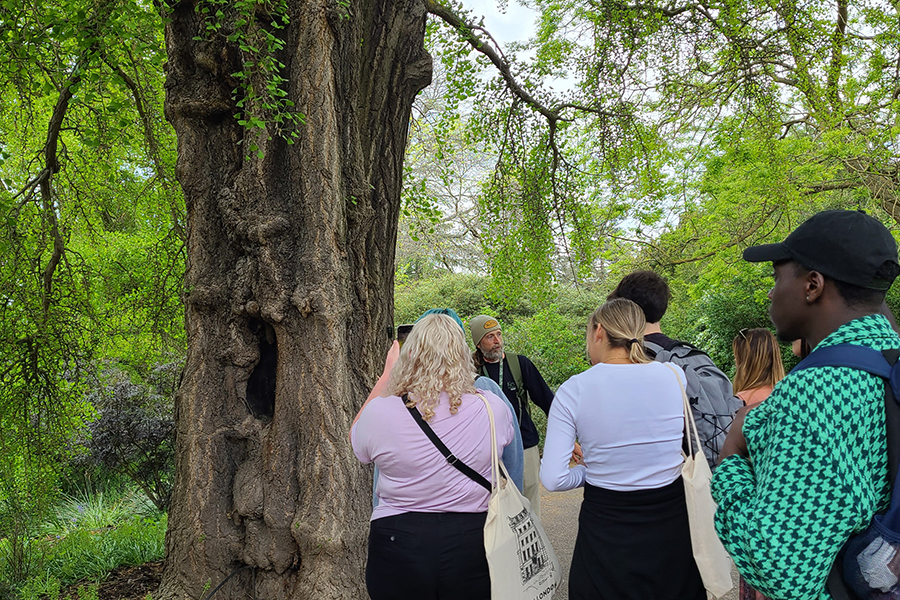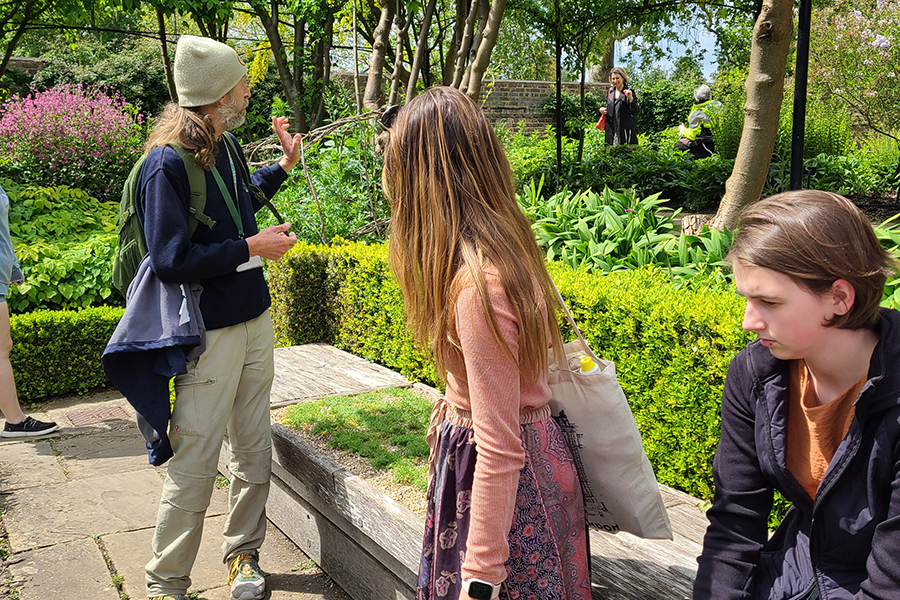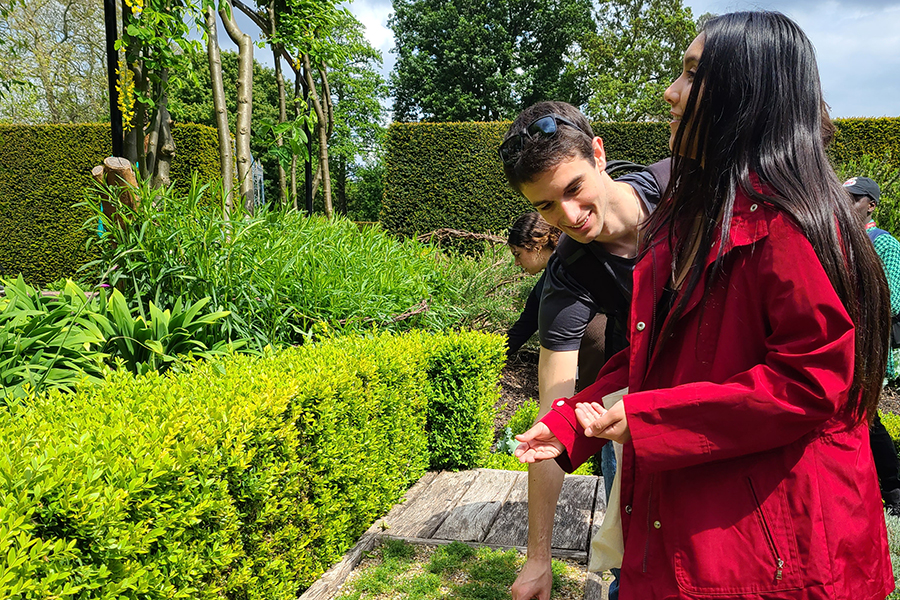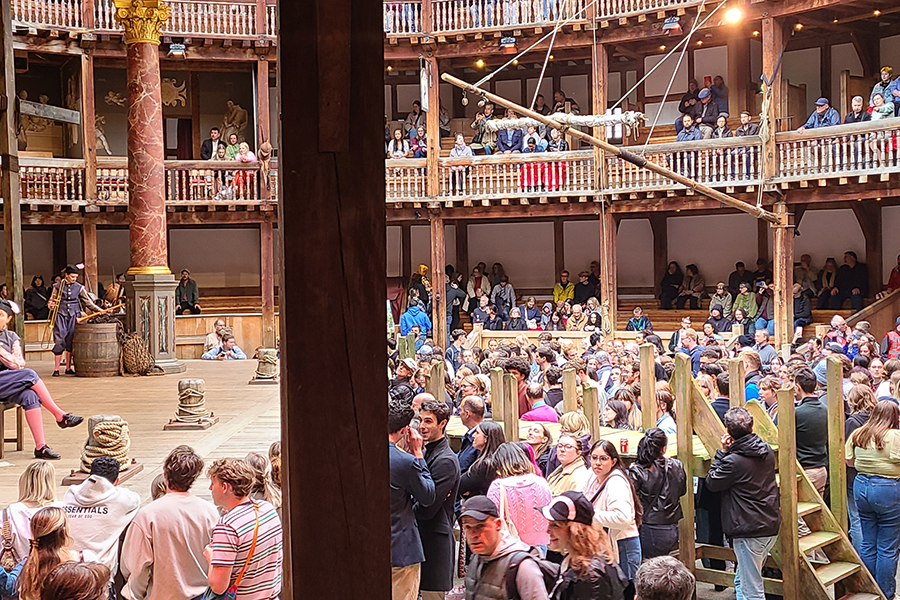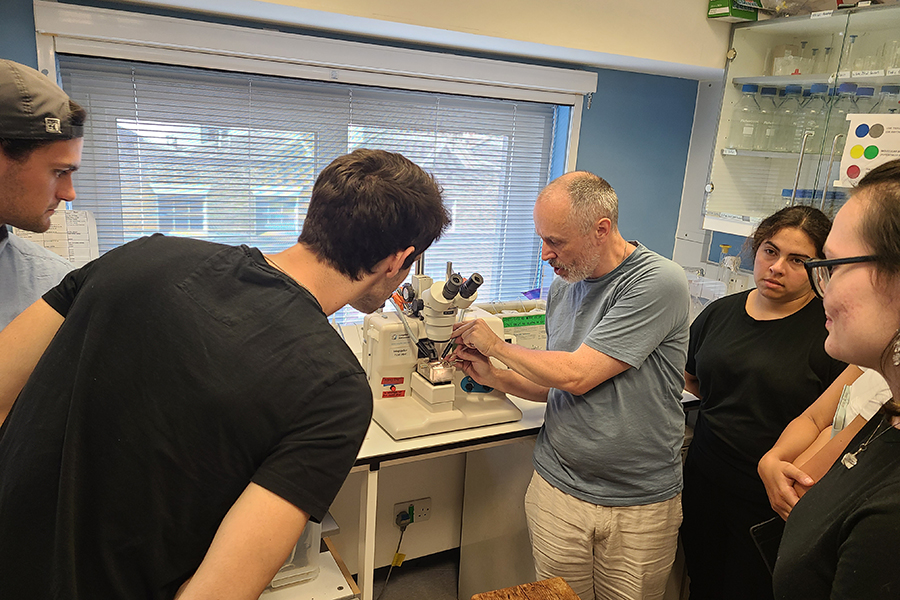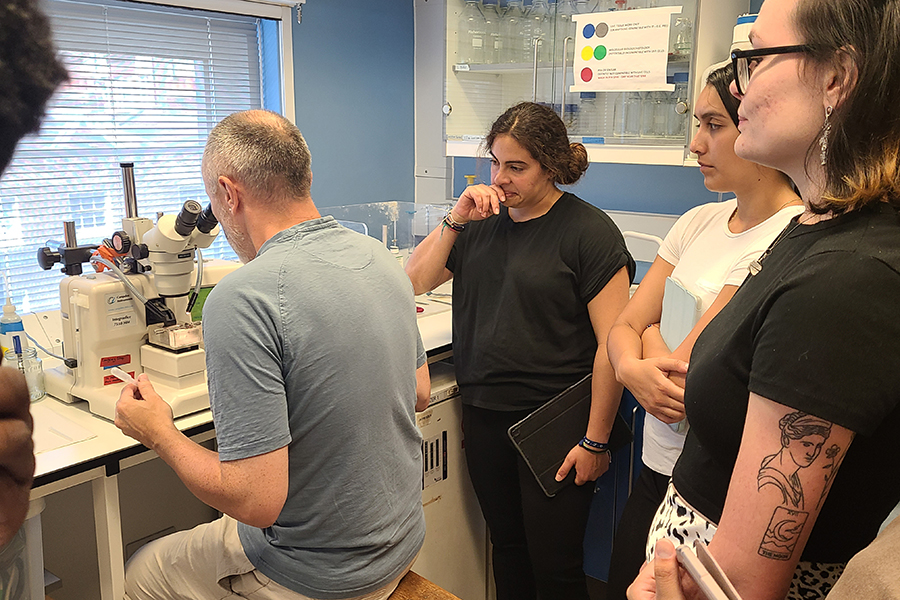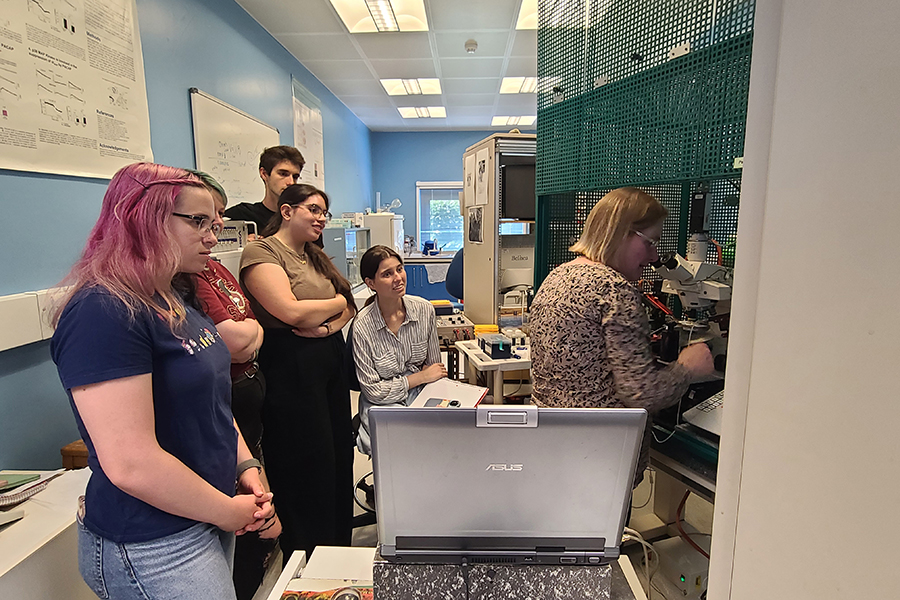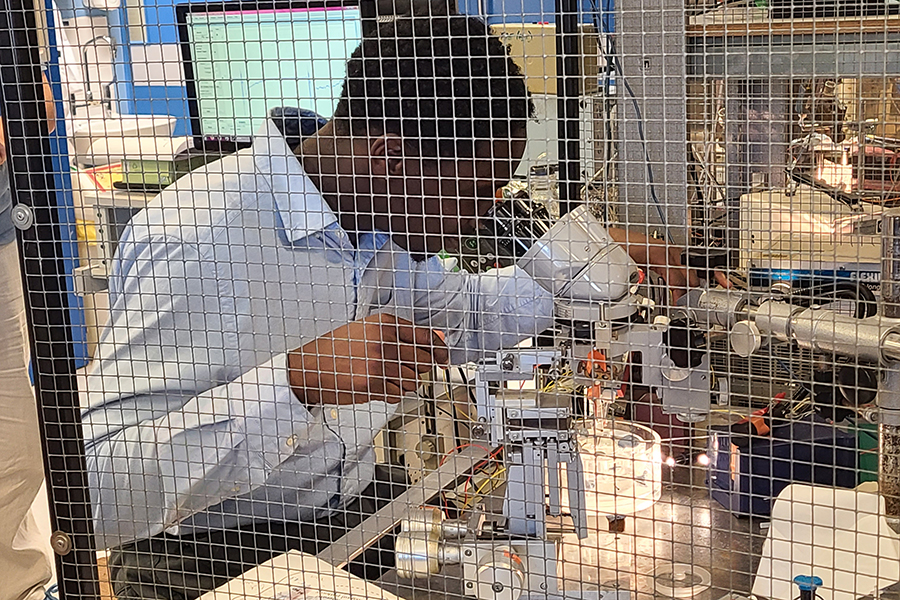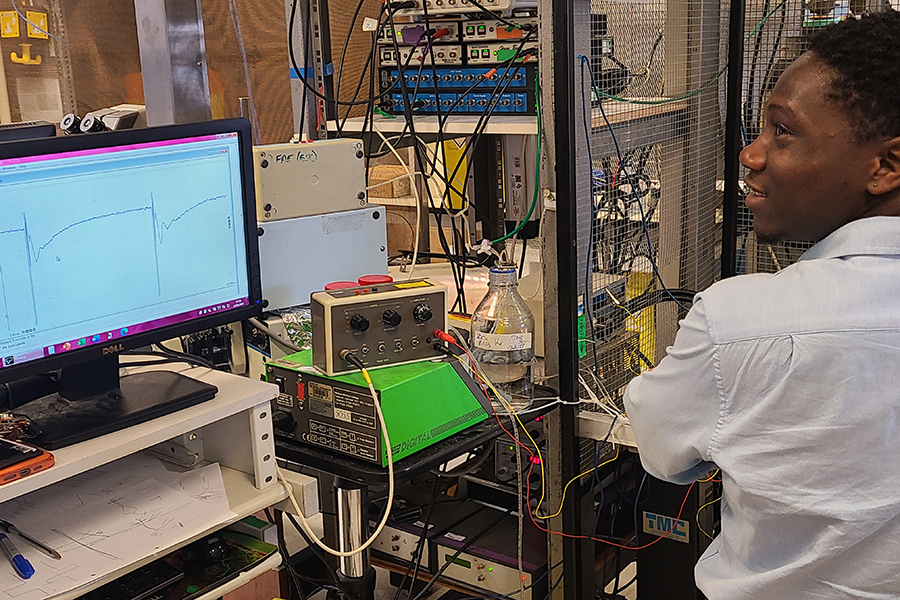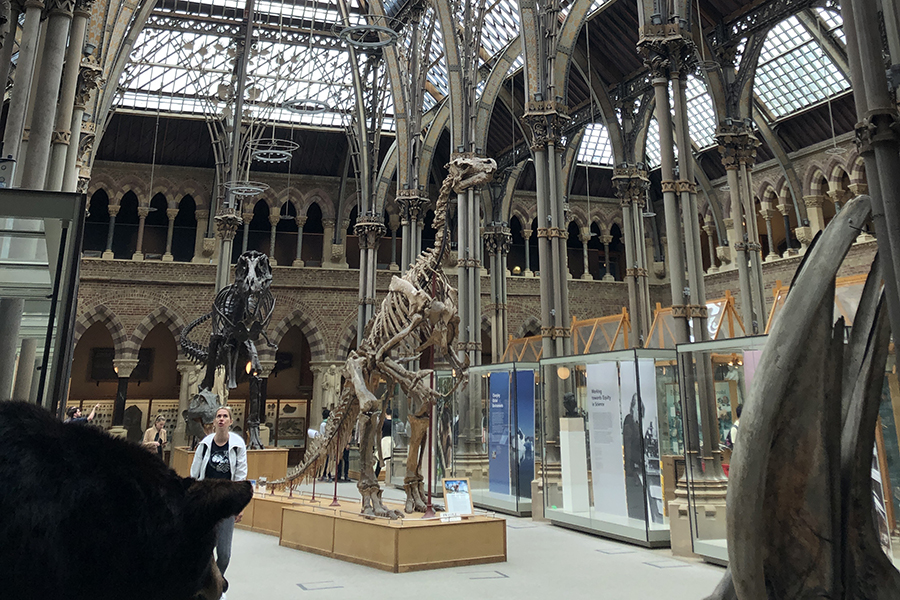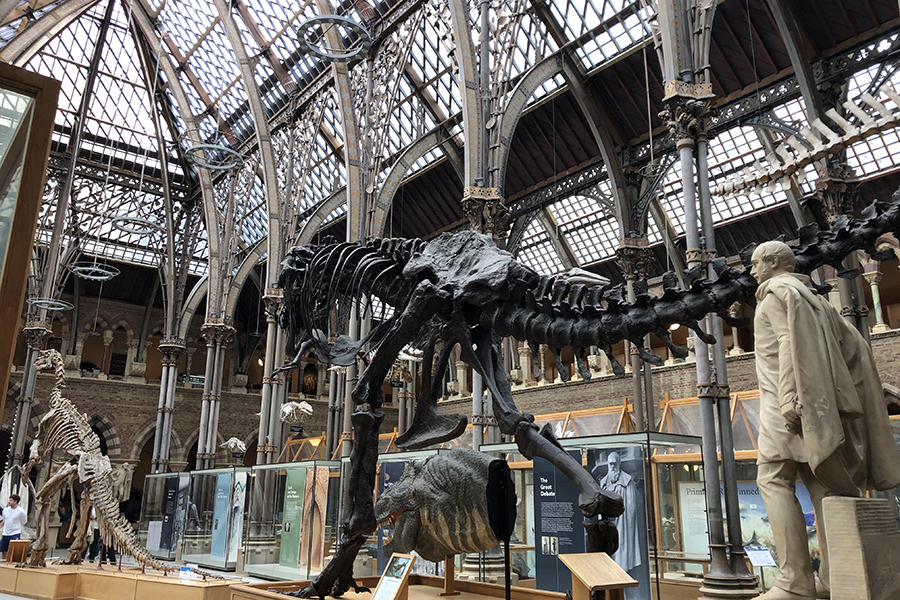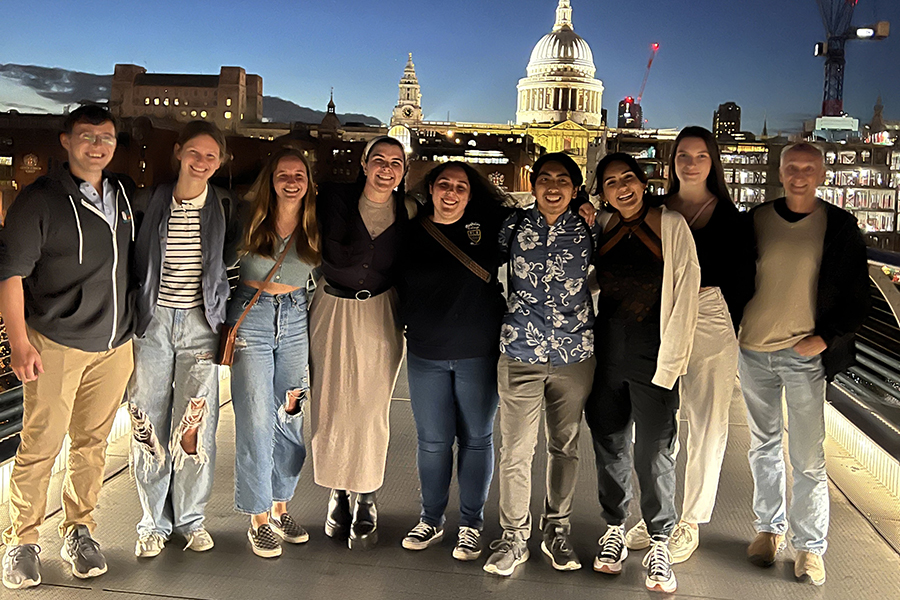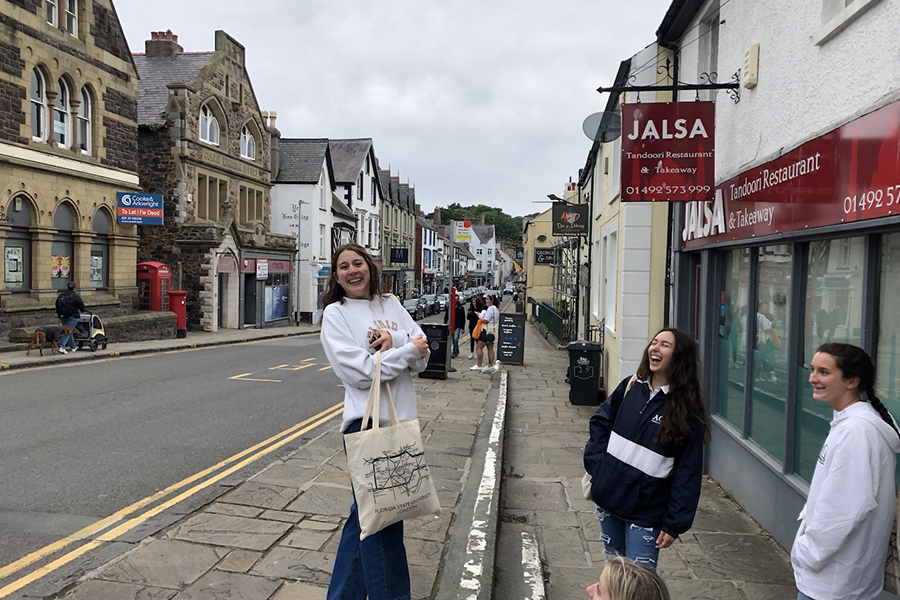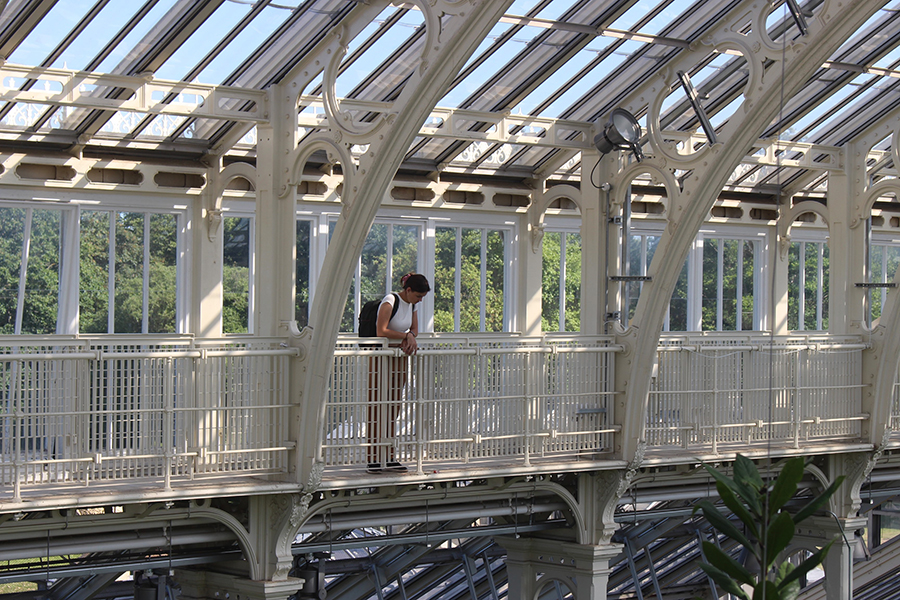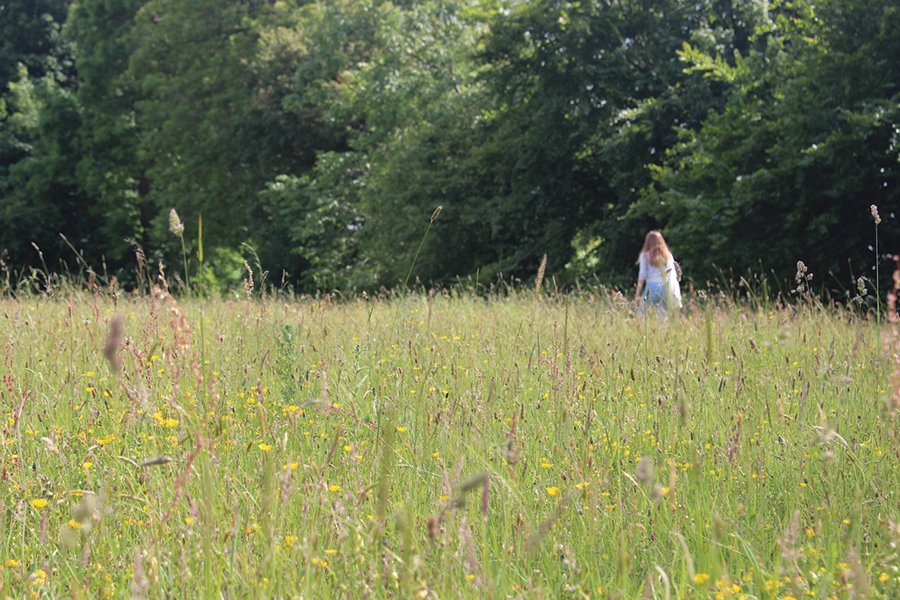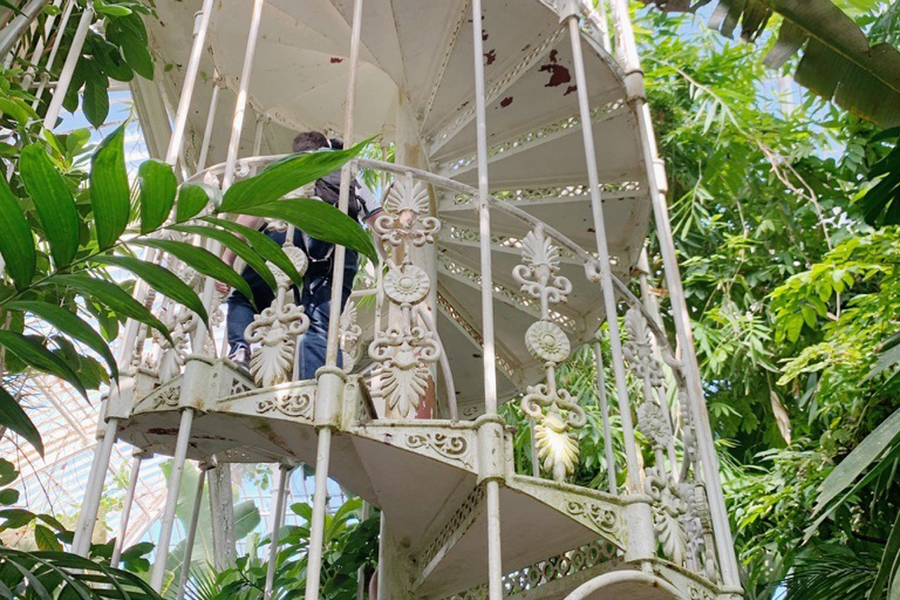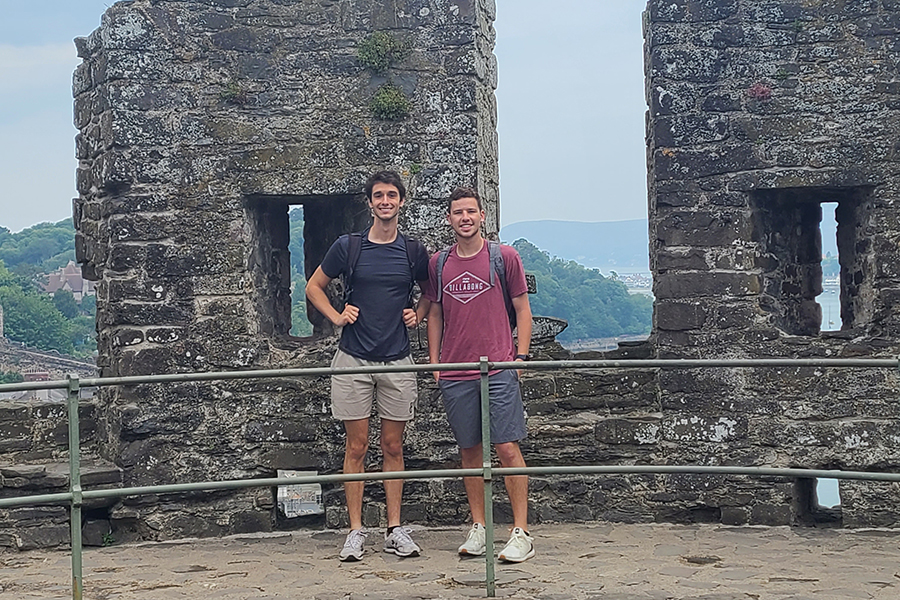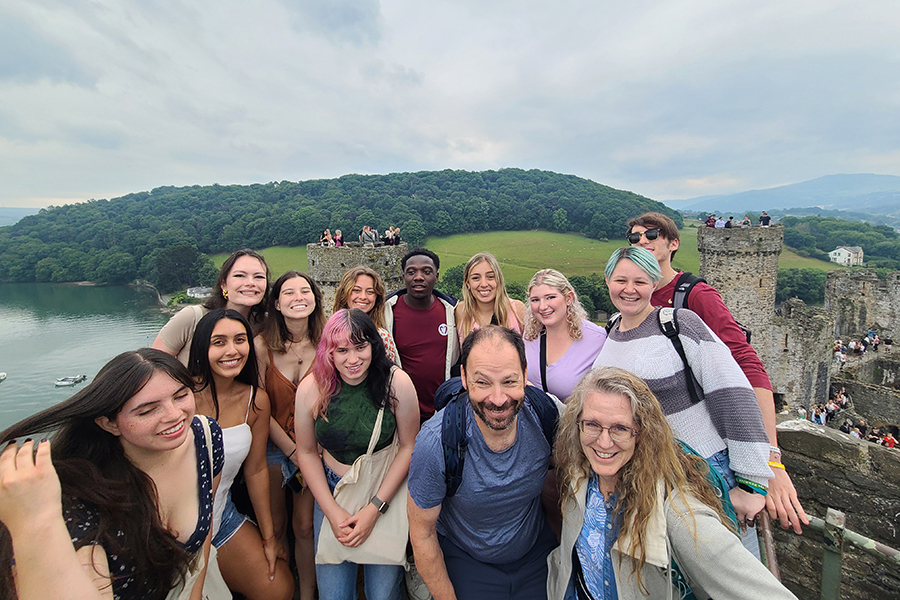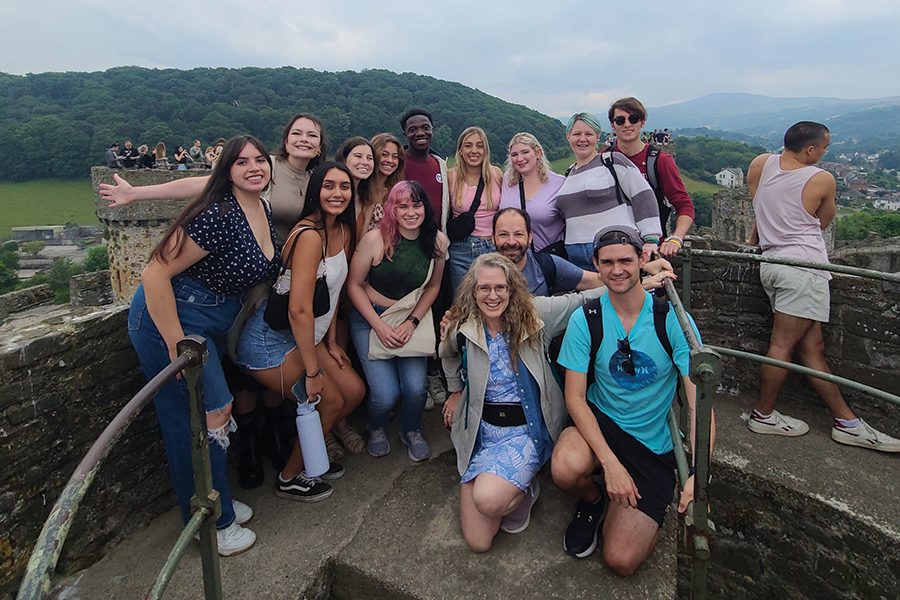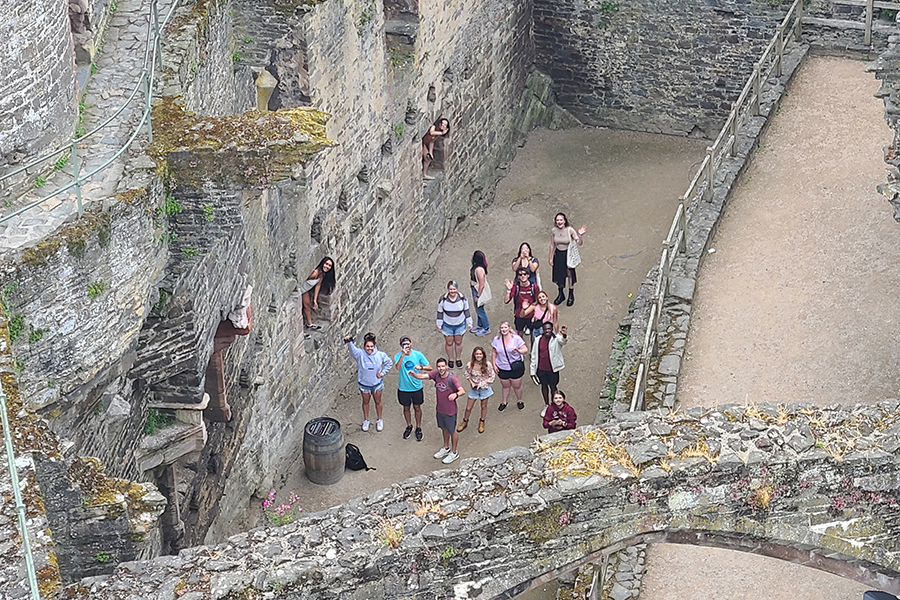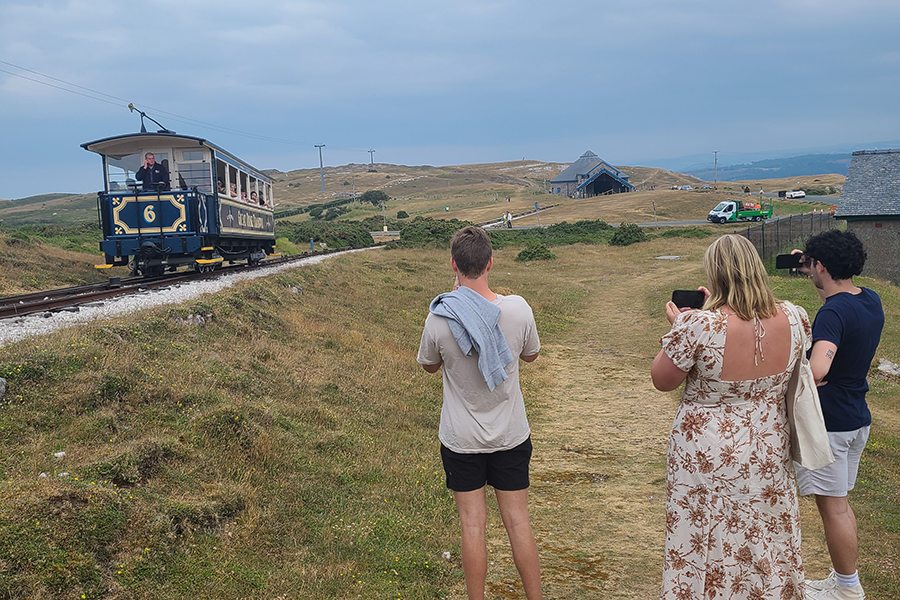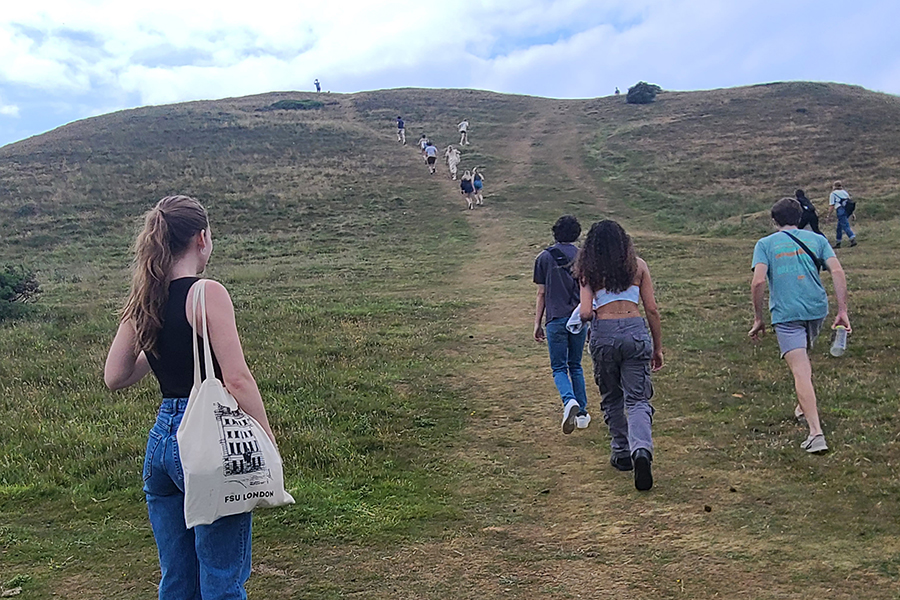Learning Laboratory
Budding biologists study in a world scientific center through the Biology in London program
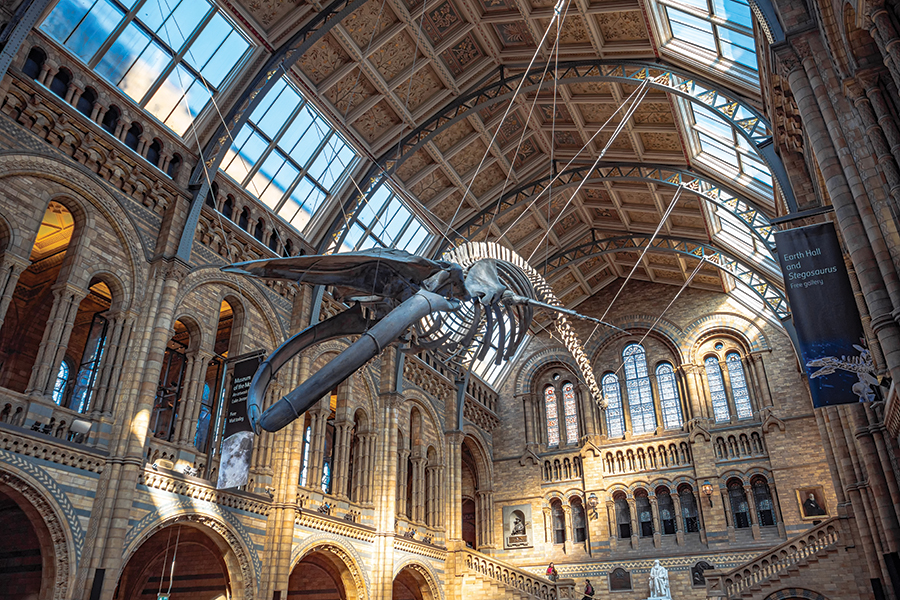
Among the bustle of Buckingham Palace, in the shadow of Big Ben, and under the watchful gaze of the London Eye are a collection of research, historic, and museum facilities that make the UK’s capital one of the world’s best places for the study of the life sciences.
While science may not be top of mind when considering a visit to London, this living, learning laboratory has been the site of some of the most important advances in history, from the Scientific Revolution of the 17th century to Stephen Hawking’s exploration of quantum gravity and black holes.
Today, it is also home to one of the most highly requested international experiences available to Florida State University students — the Biology in London program. Since 2022, BIL has attracted young biologists and other aspiring life scientists to explore and study scientific history and trailblazing discoveries through unrivaled hands-on experiences at the physical locations where they happened.
“If you think of biology as organisms living in London, it might not seem like a biological center,” said Scott Steppan, professor of biological science and the program’s director. “Historically, as an intellectual center, London offers more than almost anywhere else in the world — I can’t think of any place better to study biology. So much biological progress has been made in this city, the biology-oriented museums here are unrivaled, and access to prestigious universities, advanced research facilities, and learned societies bolster the academic excellence.”
This summer, students led by professor of biological science Scott Stagg will study cell structure and function while teaching faculty Kevin Dixon guides them in the examination of large, complex organisms such as plants, animals and fungi, known as eukaryotic diversity.
“London has an enormous impact on cell biology, and we’ll explore museums with important historical instruments, attend exhibitions that fuse art with medicine, and visit the University of London where I have colleagues who are actively researching some of the topics we cover in the course,” Stagg said. “I’m excited to see the microscopes that were used to view the very first microorganisms, the original model Watson and Crick made of the DNA double-helix, and other important artifacts, and I’m even more eager to share this experience with my students.”
Classes are small and intimate, and each faculty member leverages the scientific prowess of the city to provide real-life examples of class concepts. In professor of biological science Marie Charrel-Dennis’ infectious disease course, students learned about disease-causing microorganisms while visiting the water pump that was the source of major cholera outbreaks in the 1800s.
“Biology in London was the best experience I have had in my time at FSU so far. Taking courses abroad for my major gave me a unique opportunity ... and made me feel as though I was learning out in the field for the first time.”
— Nia Everidge, Biological Science Major
“My class was out and about every day,” said Charrel-Dennis, who taught during the first BIL program in 2022. “We also visited a former plague pit that is now a beautiful square and playground on the south side of London, and it was surprising for students to realize that thousands of people were buried there during the plague.”
While the Biology in London program is designed to satisfy degree requirements for biology majors, other FSU science majors and non-majors are also encouraged to enroll.
“I feel very lucky to have been a part of the first Biology in London program. The program offered electives that not only counted toward my major but also furthered my interest in fields I likely would not have explored without studying abroad,” said Sara Ballesteros, a senior biological science major who attended the program’s inaugural session. “The excursions and behind-the-scenes experiences we were given were immeasurable in their worth, and it was a privilege to have had such a dynamic learning experience. The program also fostered relationships among like-minded peers and faculty that are difficult to replicate in traditional classes.”
Classes are taught in two sequential four-week sessions for a total of eight weeks spent studying in the city, visiting Charles Darwin’s Down House, exploring the world’s largest and most diverse botanical and mycological collection in the Kew Royal Botanical Gardens, and receiving private tours of the collections at the Natural History Museum. They also get to partake in cultural programming, including viewing and participating in performances at the Globe Theatre, among other excursions.
Debi Fadool, a distinguished research professor of biological science and neuroscience, taught human physiology in London in 2023 alongside her husband Jim, also a professor of biological science and neuroscience, who instructed general genetics.
“Because biological science is one of the university’s most popular majors, many biology classes are composed of hundreds of students,” Debi Fadool said. “On campus, biology courses can be as large as several hundred students, but in London with classes of 20 students or less, studying biology is a far different experience. We appreciated the one-on-one time with our students as much as they did. It was also unique for the students who we taught back-to-back as a team effort, delivering two core classes in the major.”
For both students and faculty, the highlight is the opportunity to work more closely with their peers.
“Biology in London was the best experience I have had in my time at FSU so far,” said Nia Everidge, a senior biological science major. “Taking courses abroad for my major gave me a unique opportunity to connect more closely with my peers and professors. The smaller, hands-on learning environment consisting of lectures, excursions, museum tours, and more cultivated my learning in a way I had not experienced and made me feel as though I was learning out in the field for the first time.”
Studying abroad is a life-changing experience, but the costs associated can put the opportunity out of reach for many talented and deserving students. The Biology in London Program Study Abroad Scholarship was established to help lower barriers to participation so these unrivaled opportunities are available to more of FSU’s future scientific leaders. Visit give.fsu.edu/fund/f09466 to learn more and make a gift.
“When our alumni studied abroad, there were few science classes available, possibly none in their major,” Steppan said. “The Biology in London program, for the first time, offers courses for students majoring in biological science and related STEM disciplines to study abroad and take rigorous coursework that contributes toward progress in their major. We invite our alumni to help ensure all eligible students can access this transformative educational opportunity.”
For students interested in participating, scholarship opportunities exist. To learn more about available funding and how to apply for the Biology in London scholarship and the College of Arts and Sciences Travel Abroad scholarship, visit bio.fsu.edu/London.
McKenzie Harris is a two-time FSU alumna who earned a master’s degree from the College of Communication and Information in 2022 and a bachelor’s degree from the Department of English in 2020.

